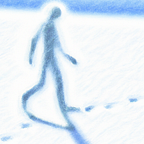When police saw Connor Leible playing with a string (stimming), instead of recognizing an autistic trait of a teenager, they saw a dangerous drug user. Note that Connor was 14 at the time. However, instead of investigating to confirm their suspicions, police tackled Connor, causing serious injury. No disciplinary actions were taken against the officer involved. Rather than being a rare encounter, this kind of over-policing of autistic people is actually commonplace.
In fact, police encounters with neurodivergent people frequently result in police violence, bogus criminal charges, and even death. Police officers, who are trained to see any unusual behavior as suspicious, latch on to autistic traits such as hand flapping or other stimming, avoiding eye contact, or auditory processing disorder. Encounters can then escalate until the autistic person has a panic attack or meltdown, giving the officer an excuse to make an arrest and charge the victim with disorderly conduct, resisting arrest, or gain “reasonable” suspicion to search the victim. In other words: rather than being trained to recognize and assist a distressed autistic person, police are trained to take advantage of the situation.
Similar to malicious 911 calls about innocent Black people, 911 calls about autistic people further increases the number of encounters with law enforcement. Any behavior that anyone finds strange or unusual, no matter how benign, becomes grounds for an investigation. This is essentially a more subtle form of SWATing, and needs to be recognized and charged as a hate crime.
Once in the court system, autistic people with few resources to defend themselves receive little to no accommodations. For autistic people who are non-verbal, communication with the judge and the ability to testify for themselves is limited. Even communicating with a lawyer can take additional time, and the stress of criminal charges can lead to further meltdowns or shutdowns, which are seen as a sign of guilt by a judge and jury.
The U.S. justice system has utterly failed to protect autistic people from hate crimes, and instead has further perpetrated them. We are an inconvenience that can be leveraged to fill quotas and make money for private prison investors. This systemic disenfranchisement has been going on for so long that we barely even recognize it.
